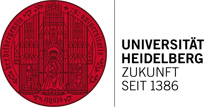German-Chinese Alumni Network in Psychosomatic Medicine and Psychotherapy (DCAPP)
For more than two years now, experts from the Heidelberg and Freiburg university hospitals and their partners at Chinese teaching hospitals and universities have promoted the establishment of psychosomatic medicine and psychotherapy in China, two disciplines that are as yet greatly neglected in that country. Adj. Prof. Jonas Tesarz and Dr Jie Susan Hick of Heidelberg University Hospital’s Department of General Internal and Psychosomatic Medicine brought us an update on the work of the German-Chinese Alumni Network in Psychosomatic Medicine and Psychotherapy (DCAPP) in times of the coronavirus pandemic:
‘Since the coronavirus outbreak, the German members of the Alumni Network in Psychosomatic Medicine and Psychotherapy (DCAPP) – a project of the German-Chinese Professional Alumni Networks (DCHAN) that were launched in 2017 by the Federal Ministry of Education and Research – have been continuously exchanging ideas and experiences with their colleagues working in psychological crisis management in China.
The COVID-19 pandemic in China affects not only the people who are or were infected with the virus and their families, but everyone who was subject to the country’s strict isolation measures and all those who are afraid of falling ill or fear for their livelihood. In late January of this year, inhabitants of Hubei Province were asked to describe their mental health status in a survey. The answers of the 5,000 respondents show that people are suffering from severe stress due to the anxieties triggered by the virus outbreak and the resulting mental and physical impairments. On top of the list was the fear of falling ill (79 per cent), followed by insomnia (36 per cent) and accompanying psychological reactions such as panic attacks (twelve per cent), exhaustion (eight per cent), nervousness (seven per cent) and a feeling of hopelessness (four per cent). This emotional stress can also lead to physical symptoms like heart palpitations, shortness of breath, gastrointestinal complaints, dizziness and headaches. As the situation in China improved, acute stress reactions were somewhat alleviated. However, mental stress may have long-term consequences. Earlier studies about crisis situations show that about ten to 20 per cent of those concerned develop post-traumatic stress disorder and/or other chronic mental issues resulting from trauma.
In order to offer these people psychological support, the Chinese psychosomatic medicine and psychotherapy experts implemented a number of measures: they set up several crisis intervention hotlines, established online counselling platforms and published books and guides with information on self-care and available treatment options. In addition, they assembled psychological intervention teams that support patients and medical staff in hospitals. They also published comprehensive information about the coronavirus, psychological self-help courses and expert lectures on online platforms established specifically for the crisis, and on large social media platforms.
The scientists of the Heidelberg departments of psychosomatic medicine and psychotherapy have viewed and analysed a large number of books, publications, videos, lectures and reports in China. They also keep in touch with their Chinese colleagues via regular video conferences and personal interviews. Overall, the experience so far shows that the psychological approaches and crisis management tools used in China are largely equivalent to the theories and practice in Germany. This comes as no surprise, seeing as the Chinese professionals acquired much of their knowledge on psychological crisis intervention from the West. A comparison shows that differences in psychological crisis management between China and Germany exist not so much in the content as in the underlying structural conditions and the specific implementation.
One important aspect of this is the special role played by social media and the centralised regulation by the Chinese government. On the practical side, these factors help implement measures quickly and efficiently. But there are also more and more critical voices pointing out the inherent risks of this situation. On the societal and political level, the regulative power of the media and the central-authoritarian leadership of the organisation offer a high potential for abuse and may cause great damage. At the moment DCAPP researchers are worried about a new trend in Chinese media: the emphasis placed on China’s successes in combating COVID-19 and simultaneous disparagement of other countries’ achievements in handling the pandemic at home, as well as underlying or even open nationalism and increasing xenophobia. Fake news and misrepresentations are disseminated through the internet. Many users publishing content online spread disinformation to attract their followers’ attention and collect likes. Another unsettling observation is the fact that certain state media, far from curbing such disinformation campaigns, sometimes actively support them. This is especially worrying because the human psyche is particularly vulnerable in exceptional circumstances like the coronavirus crisis. Against this background, critical debate is needed now more than ever in order to ensure efficient and effective crisis management, on the one hand, and remain vigilant to potential risks of abuse, disinformation and manipulation, on the other.
This is where close cooperation between German and Chinese experts can be of great benefit. German and Chinese scientists of the DCAPP network are currently planning joint bilateral studies on the subject of ‘psychosocial effects of the COVID-19 pandemic’, as well as web-based workshops and conferences to share their experiences in this field and their ideas on psychological crisis management and potential long-term effects of the coronavirus crisis.’

